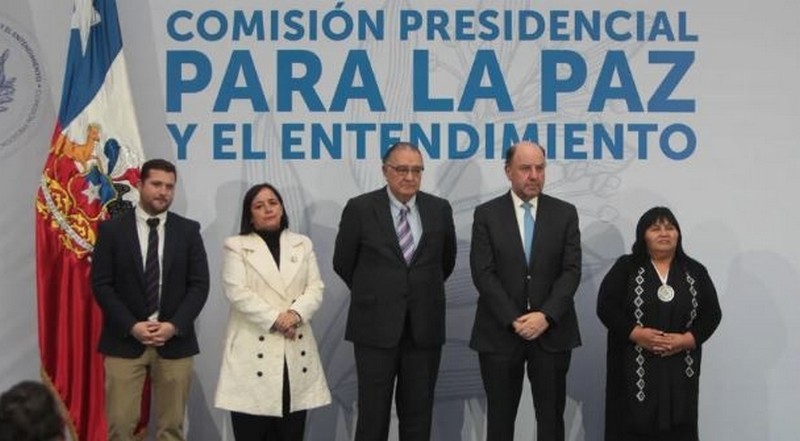The government and the ruling coalition would be the main "losers" if the Commission for Peace and Understanding fails to deliver a consensus proposal or only presents minimal measures without addressing the root problems, warns Domingo Namuncura, former director of the National Corporation for Indigenous Development (Conadi), longtime PPD leader, and current academic. This comes as the final and non-extendable deadline for this presidential commission expires the day after tomorrow. During the past week, the group of eight commissioners met for four days without reaching agreements and was still holding virtual meetings last night to seek unanimity on the proposals they will submit.
"If the report we expect is born with forceps and significant difficulties, with some political parties accepting it and others rejecting it, with commissioners agreeing only on minimal common ground without addressing the essentials, the first defeat in this is for the government and the ruling coalition," argues Namuncura. He also maintains that there will be an impact "on the political and social spheres and, certainly, it will once again generate discouragement among indigenous peoples."
Persistence of the Conflict
Regarding the latter, he states that it "can only fuel the persistence of the conflict, and what must be kept in mind is that indigenous peoples, due to their ancestral history of over 500 years, have developed over centuries an enormous capacity for resilience in spiritual, social, political, and cultural terms. They are defeated peoples, but they have survived all crises with the State. Social and cultural struggles sometimes take time to crystallize, but if indigenous peoples have learned anything over generations, it is to have an active, historical patience."
"Without Agreement, We All Lose—Mapuche and Non-Mapuche Alike"
Hugo Alcamán, president of the Corporation of Mapuche Professionals, believes that if no agreement is reached, "the cost will be borne by La Araucanía and Arauco, the poorest regions of Chile," and emphasizes that "here, we all lose: Mapuche and non-Mapuche."
He urged "making a final effort, because no matter how small the step taken, it would mean progress toward peace, even if not at the scale or speed we need. Still, we value all instances and contributions made to overcome violence and achieve rapprochements and agreements."
He lamented the recent pressures on members of the presidential commission. "The commissioners have made a great effort, and that must be acknowledged, but the pressures from political parties and radicalized groups are absolutely deplorable because what was needed here was to await the conclusions and join this state-led effort," stressed the Mapuche leader.
"Any Peace Formula Comes at a Price"
Namuncura emphasized that "to resolve the conflict over land restitution demands, the first thing the country and the conservative world must consider is that any formula for peace and understanding with the Mapuche people comes at a price."
In the same vein, Namuncura argued that "the State and Chilean society must understand that if we truly want peace in Chile—with the Mapuche people and the demanding communities—that peace has a price to pay through a commitment to land purchases." He proposed that acquiring these lands, whether "from forestry companies or private owners, should occur over several years" and be made "available to a National Land Fund under the Ministry of National Assets, from which a restitution plan can be developed."
For Namuncura, "all of this is the crux of the conflict, and it cannot be resolved with many peripheral promises of new or better social policies."
Source:El Mercurio







Comentarios (0)
No hay comentarios aún. ¡Sé el primero en comentar!
Deja un comentario